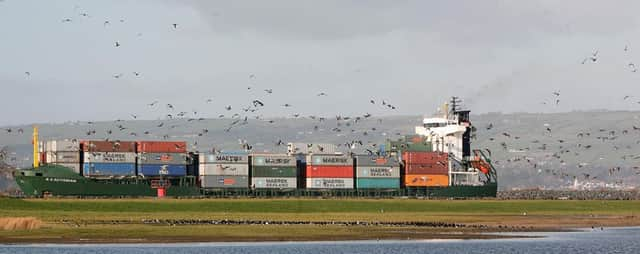NI output declines for the first time in 15 months


The weakness of sterling following the referendum also led to a sharp acceleration of cost inflation according to the the respected survey.
On a more positive note, employment continued to increase and companies were able to secure greater new export business.
Advertisement
Hide AdAdvertisement
Hide Ad“After last week’s UK PMI data showed falls in activity in each of the manufacturing, services and construction sectors in the month following the EU referendum, it is not a huge surprise to see the Northern Ireland private sector following suit and recording a return to contraction for the first time in 15 months,” said Richard Ramsey, chief economist in Northern Ireland for the Ulster Bank.
“Output decreased on the back of a reduction in new orders, itself the first decline since April 2015.
“When looking at the UK regional breakdown, it is clear to see that Northern Ireland firms were by no means alone in reporting a more challenging July.
“Some comfort can perhaps be drawn from the fact that the reductions in output and new orders in Northern Ireland were weaker than the UK average. Another positive aspect of the latest survey was that employment continued to rise, suggesting that firms may not be completely resigned to an extended downturn and hold out hopes that the drop in July will prove transitory.
Advertisement
Hide AdAdvertisement
Hide Ad“The weakness of sterling following the referendum played a key role in certain aspects the local economy during the month. The rate of cost inflation accelerated sharply and was the fastest since March 2012 as the costs of imported items increased. But on the flip side firms were able to take advantage of an improved competitive position to secure growth of new export orders.
“Delving into the sector data shows companies in the service economy have had the most difficult month, with activity and new business falling at the sharpest rates since early-2013. Construction remained in contraction territory, but manufacturers were able to raise production on the back of new order growth and rising export demand in particular. Meanwhile, retail saw little change in activity but a reduction in new orders. The service sector was the only area not to record job creation in July, with staffing levels left unchanged.
“Overall, the latest PMI is no doubt concerning for the economy. However, we shouldn’t read too much into one month’s survey.”